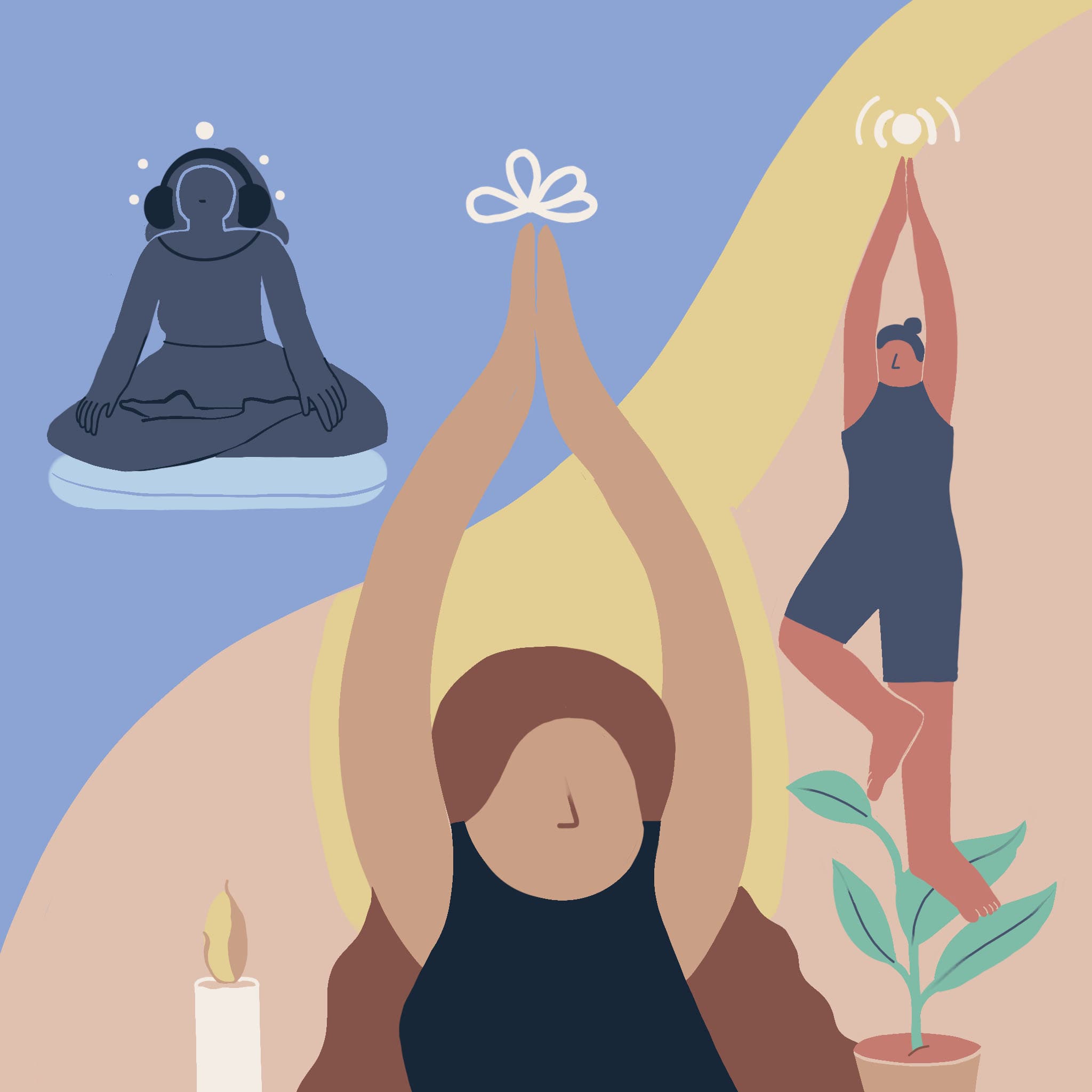This blog was edited by Mujtaba Ahmed, a content writer for Proactive for Her.
You might have had times when you’re conversing with someone, and you can’t recall what they spoke about. Meaning, though you were there physically, you weren’t quite present mentally.
There might be times when you’re overthinking and analysing your past or future to a point that you don’t realise how your day has gone by. This is due to the lack of mindfulness.
As Psychologist Scott Bishop described, mindfulness is a “non-elaborative, non-judgmental, present-centred awareness in which each thought, feeling, sensation that arises is acknowledged and accepted as it is.”
Mindfulness is about focus and awareness.
Where Focus is the ability to concentrate on what you’re doing at the moment
and
Awareness is the ability to recognize and release unnecessary distractions as they arise.
When we aren’t mindful, it is as if we’re on autopilot, just drifting through life without experiencing all of it. This includes missing out on beautiful sights, sounds, smells and connections and the joy to appreciate anything. Some of these times our minds seem to be "switched off”. Other times we might be caught in the past or in planning for the future, confining ourselves in a loop.
This is where we need to start acknowledging each thought or feeling and accepting it without the need to figure it out or explore it further.
Why is being mindful at work important?
- Evidence shows positive changes in case of stress, anxiety, depression.
- Helps with postural back and neck discomforts.
- Improved personal development such as empathy and coping.
- Enhanced attentional control and working memory.
- Improve cognitive performance, such as problem-solving and decision making, which can contribute greatly to teamwork and conflict resolution.
- Good quality of life.
How does mindfulness work?
Mindfulness induces a relaxation response. This is basically an anti- fight or flight response. It engages the parasympathetic nervous system, which is responsible for restoring the body to base levels after a stress response, calming it down by lowering the heart and respiratory rate, blood pressure, and muscle tension.
There are many different practices that can help you achieve mindfulness, including different types of sitting meditation, movements, or even simply immersing yourself in nature.
Here are a few practices that can make you mindful:
1. Practice meditation: You could try mini-meditation or guided meditation, for a duration ranging from 5 minutes to an hour, whichever is convenient for you. You improve upon this gradually with regular practice.
2. Stress-relieving techniques, while on the move -
- Take deep breaths and focus on inhalation and exhalation. Count your breaths.
- Seat yourself in a comfortable posture and a peaceful environment.
- Train your mind to focus on your breaths every time your mind starts to wander or gets distracted.
3. Yoga- Nidra (Yogic sleep): This is a type of yoga that involves consciously taking your attention to different parts of the body and relaxing them. This does not include actual sleeping, instead of conscious sleeping with awareness.
4. Mindful exercises- With this approach, you’re basically supposed to take a break every 20-30 minutes. You could do this by shifting your attention from whatever you’re doing and focusing on any object, for 20 seconds. For example, you can try focusing on the shining sun outside the nearest window, or a pen in front of you. As long as you revert your attention to the present moment, you’re good. This could be for as little as 1 min too.
5. Try to achieve one task at a time- While multitasking, your brain is madly switching from one thing to the next, often losing data in the process. Studies show that multitasking is actually addictive and makes you under productive while you may feel otherwise. The next time you catch yourself doing too many things, stop and focus on one task at a time.
6. Remind yourself to be mindful- Research at Harvard University showed that 47 % of a person’s day can be spent lost in thoughts. The brain’s default mode is to be habitually lost in thoughts. Which leads to forgetfulness and lack of creativity. Set an alarm or reminders on your phone, that can help bring you back to the moment.
7. Slow down- Taking rest increases efficiency. If you do get about seven hours of sleep, adding a few minutes of mindful relaxation during work would make your brain even more efficient, focused, effective at communication, and better at learning new skills.
8. Cultivate gratitude (positivity), humility and acceptance- Work problems are what they are, take them as they are and focus on their resolution rather than sulking or denying them.
Keys to achieving mindfulness
Intention- Try to develop awareness. Whenever you notice your mind drifting away in thoughts, pause and try to come back.
Attention- Pay attention to what you’re doing and what you can do in the present. Observe your thoughts, feelings, sensations and surroundings.
Attitude- Positive attitude goes a long way. Show unconditional love to yourself. If you feel guilty or bad about your past, forgive yourself and try to move on.
If the curiosity of your future bothers you, try focusing on what you can do in the present, to make the future better.
Most importantly be non-judgemental and kind towards yourself as well as everyone else.
Bottom Line
Though mindfulness is a habit acquired over time, when practised gradually, every now and then, you can definitely achieve it.
Not only will you be more focused during your day, but mindfulness will also make you aware of your emotions and help you in dealing with them.
We at Proactive aim at creating a world-class medical experience for Indian women and adopt gold standards in every healthcare initiative whether it’s a teleconsultation or a webinar. What sets us apart from the rest is our liberal, convenient, and holistic approach to healthcare.
Disclaimer - This information is provided for educational purposes and should not be construed as medical advice. Please consult with your healthcare practitioners before undertaking any changes in your diet or adding supplements.
Proactive is a digital clinic for women, offering accessible, personalized, and confidential healthcare solutions. We offer products and services for out-patient health concerns of Indian women, across their lifetime - from puberty to pregnancy to menopause. To know more on the sexual and reproductive health of women, visit https://www.proactiveforher.com/

